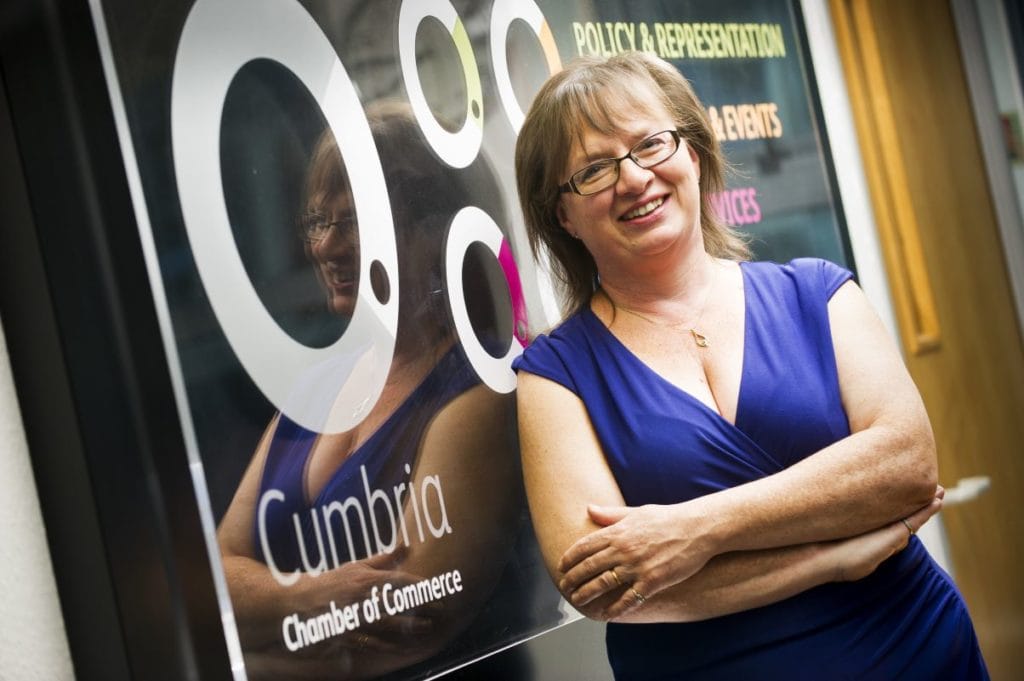
The Government is urged to set out a clearer package of flexible support to help companies bounce back from the COVID-19 lockdown after latest figures show that at least half of all businesses in the North West will struggle to run at full capacity until July at the earliest.
Cumbria Chamber of Commerce is warning the government that unless it responds with significant support and intervention, in line with the levelling-up rhetoric in last month’s Queen’s Speech, then productivity issues could hamper the region in the long term.
A breakdown of the British Chambers’ Workforce and Reopening Survey 2021, in partnership with small business loan platform Funding Circle, shows that the North West is behind the rest of the UK in how quick it can return to pre-pandemic levels of output.
The survey showed:
- Only 50 per cent of businesses are currently operating at pre-pandemic levels, compared to 53 per cent nationally.
- 21 per cent of businesses will definitely not be able to return to their full output levels in 2021.
- 39 per cent see concerns around a future lockdown being a barrier to restarting their operations.
- 33 per cent also feel current COVID-19 requirements including social distancing as a barrier to increasing their performance to pre-pandemic levels.
Half of all businesses in the region feel access to increased external finance would overcome the current barriers.
The survey of more than 1,000 firms, almost all SMEs, also cited reduced or no customer demand for products/services as another reason why 30 per cent of businesses cannot return to pre-pandemic performance levels.
While small business confidence is rising, the high level of caution remaining over any future COVID-related lockdown was a cause for concern, the survey found.
Suzanne Caldwell, managing director of Cumbria Chamber of Commerce, said: “Significant elements of Cumbria’s economy have been hamstrung since restrictions from the global pandemic were peeled back in May.
“This has largely been due to staff shortages and issues in recruiting across the economic landscape, but especially in hospitality, tourism and manufacturing.
“It’s vital that Government maintains a flexible and targeted approach to supporting businesses and focuses its resources on those sectors where there is the greatest need, while at the same time getting people off furlough and into work where there is the realistic opportunity to do so.
There also needs to be a concerted package of measures to enable businesses to recruit more staff – including from overseas.”
Recent data by the Office for National Statistics has also showed that 19 per cent of all SME manufacturers operating out of a single premises in the North-West are no longer operating due to the pandemic.
Suzanne added: “Confidence is key if Cumbria is going to continue being as resilient as it has been since early 2020.
“That confidence requires bolstering by the Government through clear and detailed financial as well as structural support for the region.
This is particularly important given the double whammy of COVID and Brexit.
“Not only are our businesses battling the impact of COVID, but both exporters and importers continue to be very significantly impacted by challenges resulting from Brexit.”
Claire Walker, Co-executive Director of the BCC, said: “The ability of businesses to bounce back from the devastation caused by Covid is a huge testament to their resilience.
“Although, the financial support put in place by the government to help many through the last 12 months will have played a crucial role.
“The government must now clarify the future of safety measures, such as social distancing, and set out a clear package of support that would be available should further restrictions be imposed on businesses this year, or in the years to come.
“Firms will feel more confident and will be more willing to invest in jobs and in developing their business, if government can give assurances that a safety net of financial support will be provided should there be a need for restrictions which reduce or stop commercial activity in order to protect public health.
“There is cautious optimism growing among firms that as the economy now gradually unlocks, they will be able to push on and return to growth.
“But the shadow of COVID is very long; many firms still feel uncertain about what the future holds.
“Having access to finance to help them weather this continuing uncertainty may well prove vital.”








